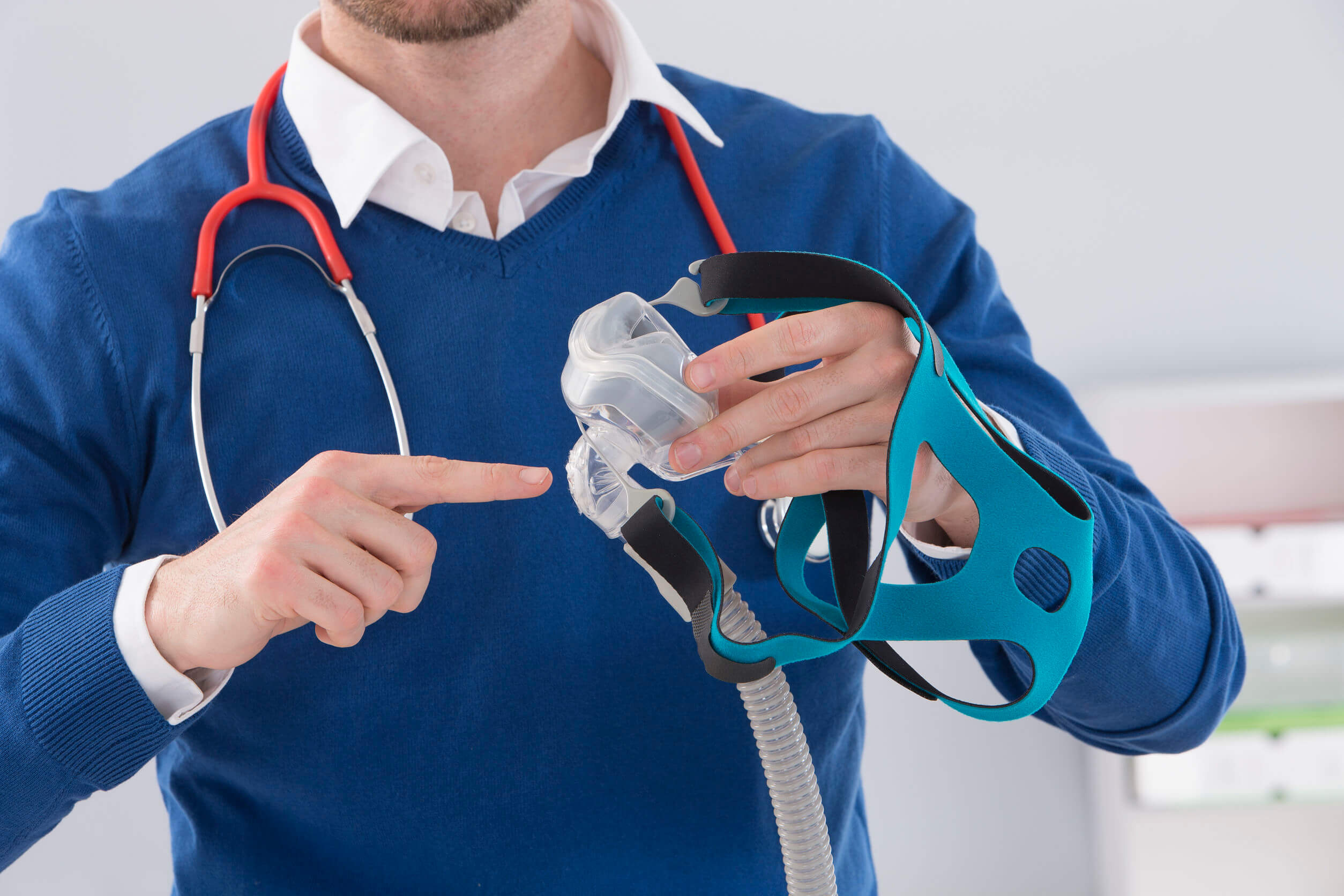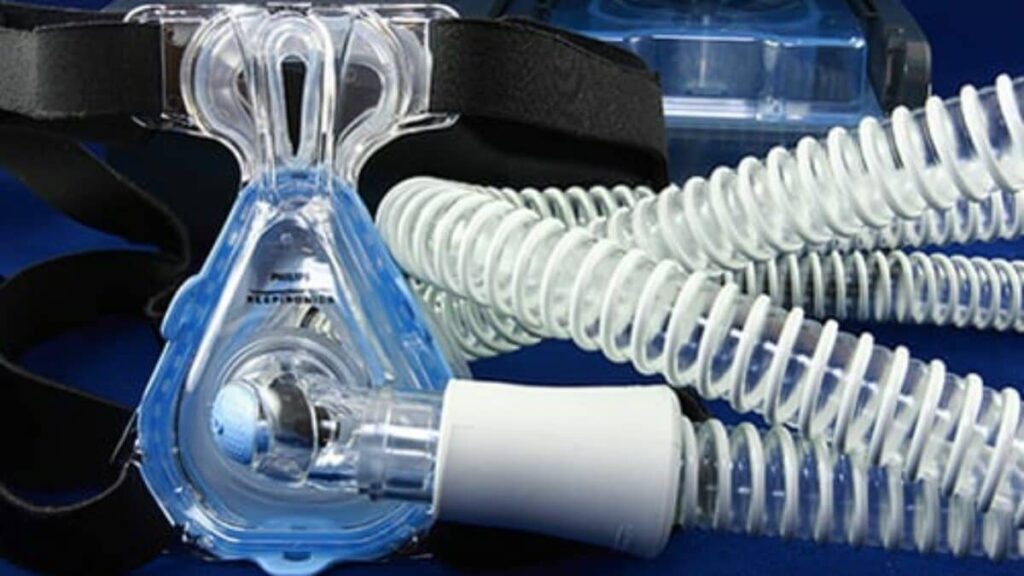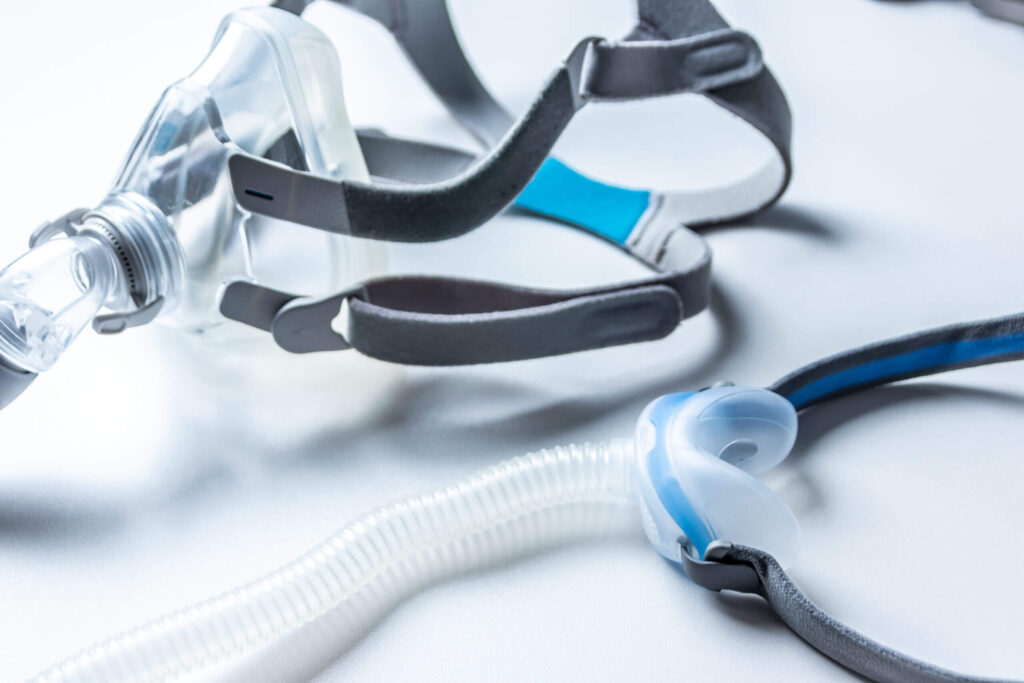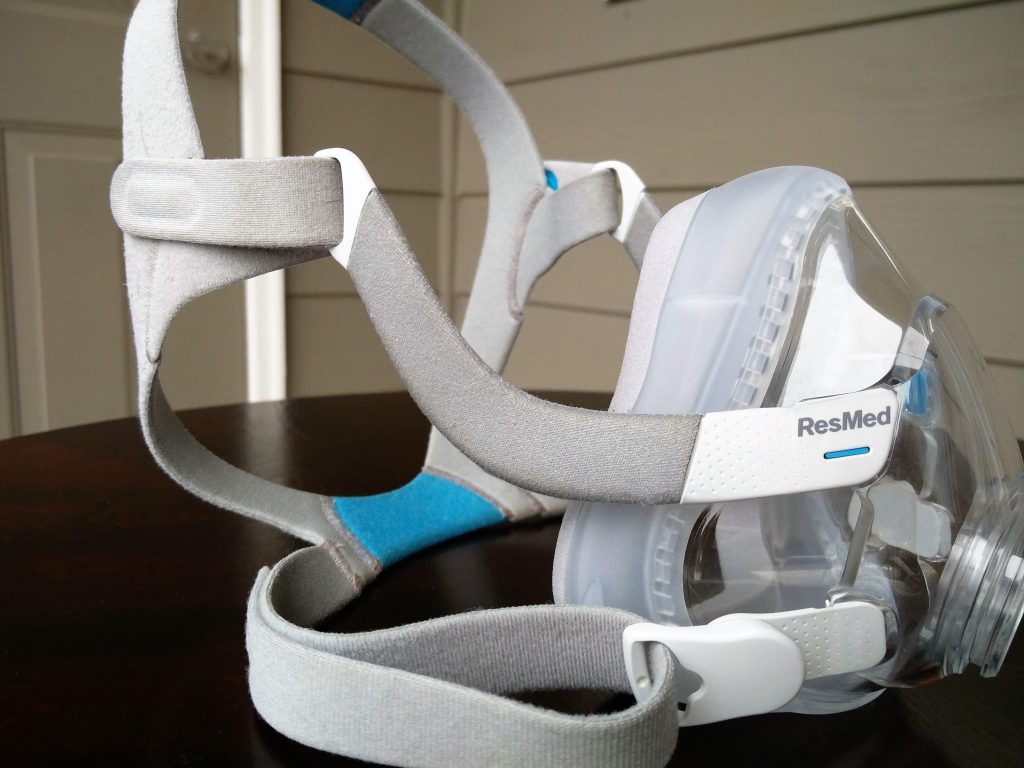The Complete Guide to CPAP Masks: Finding the Best Fit for You

CPAP (Continuous Positive Airway Pressure) therapy is an effective treatment for sleep apnea, a sleep disorder characterized by interrupted breathing patterns during sleep. CPAP masks are an essential component of this therapy, ensuring a continuous supply of pressurized air to keep the airway open. Choosing the right CPAP mask is crucial for the success of the therapy and your overall comfort during sleep.
In this guide, we will discuss the importance of CPAP masks, the different types available, factors to consider when choosing to buy cpap mask online, tips for getting used to your mask, and how to maintain and clean your mask for optimal performance.
Understanding the Importance of CPAP Masks
CPAP masks play a vital role in the treatment of sleep apnea. The primary purpose of these masks is to deliver a constant flow of pressurized air to keep your airway open while you sleep. By preventing interruptions in breathing, CPAP masks help to alleviate the symptoms of sleep apnea, such as loud snoring, daytime fatigue, and morning headaches. Using a CPAP mask regularly can significantly improve your sleep quality and overall well-being.
The Role of CPAP Masks in Sleep Apnea Treatment
CPAP masks work in conjunction with CPAP machines, which generate the required air pressure. The mask, worn over your nose, mouth, or both, allows the pressurized air to enter your airway, ensuring that your throat does not collapse during sleep. This keeps the airway open and allows for smooth, uninterrupted breathing throughout the night. Consistent use of a CPAP mask is essential for effective sleep apnea management.

When it comes to selecting a CPAP mask, there are various options available to suit individual preferences and needs. Some masks cover only the nose, while others cover both the nose and mouth. There are also different sizes and styles to choose from, ensuring a comfortable fit for every user. It is important to consult with a healthcare professional to determine the most suitable mask for your specific condition.
Once you have chosen the right CPAP mask, it is crucial to properly maintain and clean it. Regular cleaning helps to prevent the buildup of bacteria, dust, and other allergens, ensuring a hygienic and effective treatment. Most CPAP masks can be easily disassembled for cleaning, and there are specialized cleaning solutions available to make the process quick and hassle-free.
See Also: Using Pediatric CPAP Machines?
Health Benefits of Using CPAP Masks
Using CPAP masks can provide numerous health benefits for individuals with sleep apnea. By improving the quality of your sleep, CPAP therapy can help reduce daytime sleepiness and enhance cognitive function. It can also lower the risk of developing cardiovascular problems associated with sleep apnea, such as high blood pressure, heart disease, and stroke. Additionally, CPAP therapy may improve mood and overall quality of life by alleviating symptoms like morning headaches and irritability.
Furthermore, the positive effects of CPAP therapy extend beyond physical health. By ensuring a restful night’s sleep, CPAP masks can help improve concentration, productivity, and overall mental well-being. Adequate sleep is crucial for maintaining optimal cognitive function, and CPAP therapy plays a significant role in achieving this.
It is important to note that using CPAP masks may require some adjustment and patience. Initially, it may take time to get used to wearing the mask while sleeping. However, with consistent use and proper guidance from healthcare professionals, most individuals adapt to CPAP therapy and experience its many benefits.
In conclusion, CPAP masks are essential tools in the treatment of sleep apnea. They provide a constant flow of pressurized air to keep the airway open, preventing interruptions in breathing and alleviating symptoms associated with sleep apnea. By improving sleep quality and reducing the risk of cardiovascular problems, CPAP masks contribute to overall health and well-being. With the right mask and proper maintenance, individuals with sleep apnea can enjoy the benefits of restful and rejuvenating sleep.
Different Types of CPAP Masks
CPAP masks come in various styles that cater to different preferences and requirements. The three common types of CPAP masks are full face masks, nasal masks, and nasal pillow masks. Each type offers unique features and benefits to ensure a comfortable fit and effective treatment.
Full Face CPAP Masks
Full face CPAP masks cover both your nose and mouth, providing a wide field of vision and accommodating different breathing styles. This type of mask is suitable for individuals who breathe through their mouth or experience nasal congestion. Full face masks are designed with a cushion that seals around the nose and mouth, maintaining the desired airflow pressure.
When using a full face CPAP mask, it is important to ensure a proper fit to prevent air leaks. The cushion should be snug but not too tight, allowing for comfortable movement during sleep. Some full face masks also come with adjustable headgear straps to further customize the fit.
One advantage of full face CPAP masks is that they are suitable for individuals who tend to breathe through their mouth while sleeping. By covering both the nose and mouth, these masks ensure that the air pressure is delivered effectively, regardless of the breathing pattern.
Another benefit of full face masks is the wide field of vision they provide. Unlike nasal masks or nasal pillow masks, which only cover the nose, full face masks allow users to see clearly and comfortably. This can be especially beneficial for individuals who like to read or watch TV before falling asleep.
Nasal CPAP Masks
Nasal CPAP masks cover the nose only, offering a more lightweight and minimalist design. These masks are ideal for individuals who breathe through their nose during sleep. Nasal masks create a seal around the nose, delivering a consistent stream of pressurized air directly to the nasal passages. They are generally less bulky and provide better mobility compared to full face masks.
When using a nasal CPAP mask, it is important to ensure that the nasal cushion fits properly and comfortably. The cushion should create a seal around the nose without causing any discomfort or pressure points. Some nasal masks come with adjustable headgear straps to ensure a secure fit.
One advantage of nasal CPAP masks is their lightweight and minimalist design. They are less cumbersome compared to full face masks, allowing for better mobility and ease of use. Nasal masks are also a popular choice for individuals who prefer a more open and less claustrophobic feel during sleep.
Another benefit of nasal masks is that they are generally quieter compared to full face masks. Since they cover a smaller area, there is less potential for air leaks and noise. This can be beneficial for individuals who are sensitive to noise or share a bed with a partner.

Nasal Pillow CPAP Masks
Nasal pillow CPAP masks are the least invasive option, featuring small, flexible cushions that fit directly into the nostrils. This type of mask is suitable for individuals who prefer a more minimal and lightweight design. Nasal pillow masks allow for a clear field of vision and minimal contact with the face, providing a comfortable and secure fit.
When using a nasal pillow CPAP mask, it is important to ensure that the cushions are inserted properly into the nostrils. The cushions should create a seal without causing any discomfort or irritation. Some nasal pillow masks come with adjustable headgear straps to ensure a secure fit.
One advantage of nasal pillow CPAP masks is their minimal and lightweight design. They are the least bulky option among the three types of masks, allowing for maximum freedom of movement during sleep. Nasal pillow masks are also a popular choice for individuals who tend to feel claustrophobic or restricted by traditional masks.
Another benefit of nasal pillow masks is the clear field of vision they provide. Since they do not cover the nose or mouth, users can read, watch TV, or engage in other activities before falling asleep without any obstruction. This can be particularly beneficial for individuals who value their pre-sleep relaxation time.
In conclusion, the different types of CPAP masks offer various features and benefits to cater to individual preferences and needs. Whether you prefer a full face mask, nasal mask, or nasal pillow mask, it is important to choose the one that provides a comfortable and secure fit, ensuring effective treatment for sleep apnea or other respiratory conditions.
Factors to Consider When Choosing a CPAP Mask
When selecting a CPAP mask, several factors should be taken into consideration to ensure the best fit and maximum comfort during sleep. Considering these factors will help you choose a mask that suits your specific needs and preferences.
Comfort and Fit
The comfort and fit of a CPAP mask are crucial for effective therapy. It is essential to find a mask that feels comfortable against your skin and creates a secure seal without causing pressure points or skin irritation. Different manufacturers offer masks with various cushion materials and adjustment options, allowing you to fine-tune the fit to your liking.
Your Breathing Style
Your breathing style during sleep influences the type of CPAP mask that will work best for you. If you breathe through your mouth, a full face mask is recommended. If you primarily breathe through your nose, a nasal or nasal pillow mask may be more suitable. Understanding your breathing habits will help you identify the mask style that aligns with your needs.
Mask Size and Adjustment Features
CPAP masks are available in different sizes to accommodate various facial structures. It is essential to choose the correct mask size to ensure an optimal fit and seal. Additionally, look for masks with adjustable features such as headgear straps and cushion adjustments, as these allow for customization and fine-tuning to achieve the most comfortable fit.

Tips for Getting Used to Your CPAP Mask
Adjusting to wearing a CPAP mask can take time and patience. Here are some tips to help you get used to using your CPAP mask effectively:
Gradual Adjustment to CPAP Therapy
Start by wearing your mask for short periods during the day to become comfortable with the sensation. Gradually increase the duration until you can wear it for an entire night. This gradual approach will help you adjust to the feeling of wearing the mask and the continuous airflow.
Dealing with Common CPAP Mask Problems
Common issues such as air leaks, discomfort, or skin irritation can be resolved with simple adjustments. Ensure that the mask is properly adjusted to create a seal, and consider using cushion covers or skin protectants if necessary. If you continue to experience problems, consult your healthcare provider for further guidance.
Maintaining and Cleaning Your CPAP Mask
Regular cleaning and maintenance of your CPAP mask are essential for optimal performance and hygiene. Follow these guidelines to keep your mask clean and prolong its lifespan:
Regular Cleaning for Optimal Performance
Wash your mask daily with mild soap and warm water to remove dirt, oils, and bacteria. Rinse thoroughly and allow it to air dry. Additionally, remember to clean or replace the mask’s filter regularly and follow the manufacturer’s instructions for any specific cleaning recommendations.
When to Replace Your CPAP Mask
CPAP masks should be replaced periodically to ensure effectiveness and hygiene. Over time, the mask cushions can lose their shape and effectiveness. Discoloration, deterioration, or reduced seal quality are signs that it may be time to replace your mask. Consult your provider to determine the appropriate replacement schedule for your specific mask.In conclusion, choosing the right CPAP mask is essential for comfortable and effective sleep apnea therapy. Consider the different types of masks available, factors to consider when choosing a mask, and tips for getting used to wearing one. Additionally, maintain and clean your mask regularly to ensure optimal performance and hygiene. By following this complete guide, you can find the best CPAP mask fit for you, improving your sleep quality and overall well-being.
